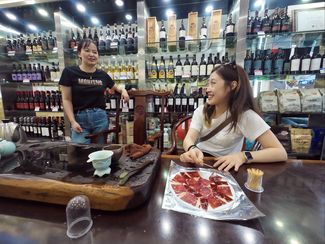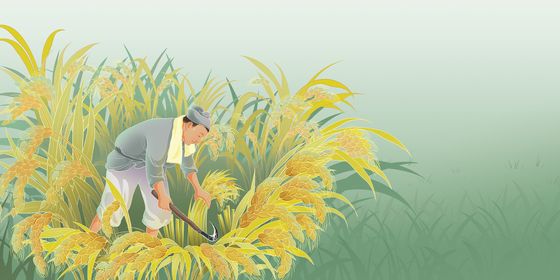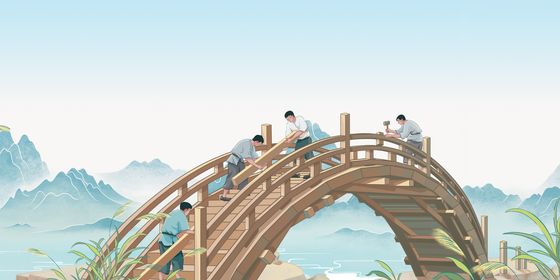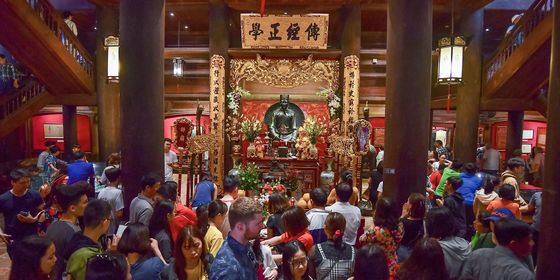The history of language around cancer
According the World Health Organization, 3 million people died of cancer in China in 2020. To put that in perspective, 2.24 million are reported to have died worldwide from Covid-19 since the virus was first discovered in late 2019.
The modern Chinese character for cancer, 癌 (ái), dates back to around the Song dynasty (960 — 1279), when medical scholars began to notice and investigate the hard tissue they found inside people’s bodies, which we now know to be tumors. Though we know more about cancer now, as long as there is no cure, 癌 surely remains one of the most dreaded Chinese characters.
Though records that appear to refer to tumors can be found in the Inner Canon of the Yellow Emperor (《黄帝内经》), a medical classic written over 2,000 years ago, the character 癌 first appeared in the medical text Weijibaoshu (《卫济宝书》) published in 1171. But the 癌 in that book was used to describe a kind of ulcer—not quite the same as how the character is used today.
In 1264, physician Yang Shiying described 癌 in his book Effective Recipes from Renzhai House (《仁斋直指附遗方论》) as “something swollen and sunken, looking like a cave, all gathered together…the root of the poison is hidden deep down, and the perforations spread everywhere (上高下深, 岩穴之状,颗颗累垂……毒根深藏,穿孔透里).” It seems Yang had identified the deadly tumors nearly 800 years ago.
But at that time, the pronunciation of 癌 was “yán,” rather than “ái” as it is today. Originally, texts frequently used only the inner component 嵒 (yán), which meant stones or rocks, to refer to the tumor and disease (that character later developed into 岩, yán, which is the modern character for rock). Back then, people believed tumors were full of bumps and holes, and seemed as firm as stone, so they chose this word to represent the disease.
The original meaning of 喦 was actually “cliff,” which added a further sense of danger to the character, which described the deadly and mysterious illness. The character commonly used in modern times adds the 疒 radical, which indicates illness—characters like 疾 (jí) and 病 (bìng), both of which mean “disease,” also contain 疒.
It wasn’t until the early 1900s that 癌 became the official name for the condition that had been identified as cancer. The character retained its “yán” pronunciation until the Chinese Character Simplification Project was launched in the 1950s. It was changed to “ái,” so differentiate the character from the meaning of rocks. Even today, in some Chinese dialects, 癌 is still pronounced as “yán.”
Today, people have begun interpreting the character from health-related angles. Some suggest the three 口 (kǒu, mouth) radicals in the middle of the character represent the three leading causes of the disease: an unhealthy diet, excessive drinking, and smoking. The 山 (shān, mountain) radical at the bottom has been connected with a Chinese folk saying which encourages people to stay healthy: “Disease comes as suddenly as a mountain falls, while it is cured as slowly as reeling off raw silk from cocoons (病来如山倒,病去如抽丝 Bìng lái rú shān dǎo, bìng qù rú chōusī).”
Internet users also developed many slang terms containing 癌症 (áizhèng, cancer), often using them to refer to bad behaviors or habits. For example, people who hate work and refuse to go out outdoors might claim they have “懒癌 (lǎn’ái, lazy cancer).” If you invite such a friend to go to the gym with you, they might say:
Sorry, I’m a serious sufferer of lazy cancer; you don’t have to invite me.
Duìbuqǐ, wǒ shì ge lǎn’ái huànzhě, búyòng dàishang wǒ.
对不起,我是个懒癌患者,不用带上我。
Sexist “alpha” males are diagnosed by internet users as having “straight man cancer (直男癌 zhínán’ái).” The derogatory term is used to refer to men who hold sexist beliefs or perpetuate female stereotypes, and suggests their chauvinism is likely incurable. One could imagine a conversation between female friends going:
A: I can’t believe my boyfriend tried to force me quit my job, and said that women should stay at home after getting married.
Zhēn bùgǎn xiāngxìn wǒ nánpéngyou jūrán yào bī wǒ cízhí, shuō nǚrén jiéhūn hòu jiù yīnggāi dāi zài jiā li.
真不敢相信我男朋友居然要逼我辞职,说女人结婚后就应该呆在家里。
B: He must have straight man cancer! You should break up with him.
Tā yǒu zhínán’ái ba!Gēn tā fēnshǒu.
他有直男癌吧!跟他分手。
People who are nosy, controlling or prone to nagging are often referred to as having “mom cancer (妈癌 mā’ái).” This term is normally used in a negative way, for example:
My friend even tries to tell me how many cups of water I should drink every day. She really has mom cancer.
Wǒ nǚpéngyou lián wǒ měitiān yào hē jǐ bēi shuǐ dōu yào guǎn, zhēnde shì yǒu mā’ái.
我女朋友连我每天要喝几杯水都要管,真的是有妈癌。
Though these slang terms are often used in informal conversation, or even as jokes, some argue that we shouldn’t use the word 癌 in such a trivial manner, since the disease has such devastating effects on so many people. Perhaps we should pay more attention to what the patients with cancer are going through—and try to lead healthy lives of our own.
Cover image from VCG












